#classic authors
Text




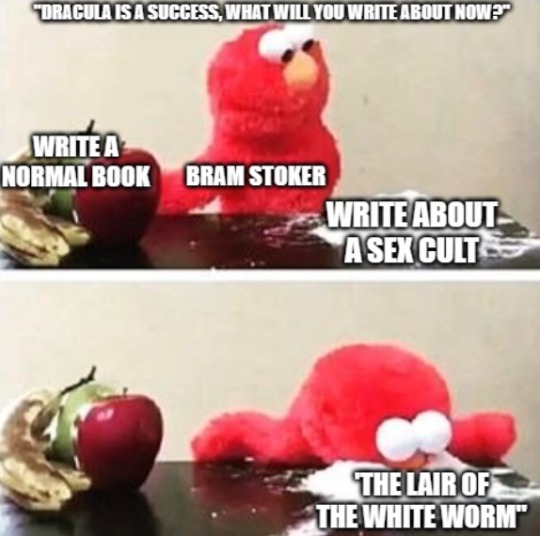




This came from me asking, "What is Emily Dickinson" as I forgot the word for recluse.

#bram stoker#classic authors#classic literature#classic lit memes#classic literature memes#emily dickinson#edgar allan poe#edgar alan poe#mary shelley#percy shelley#lord byron#arthur conan doyle#hg wells#h g wells
177 notes
·
View notes
Text

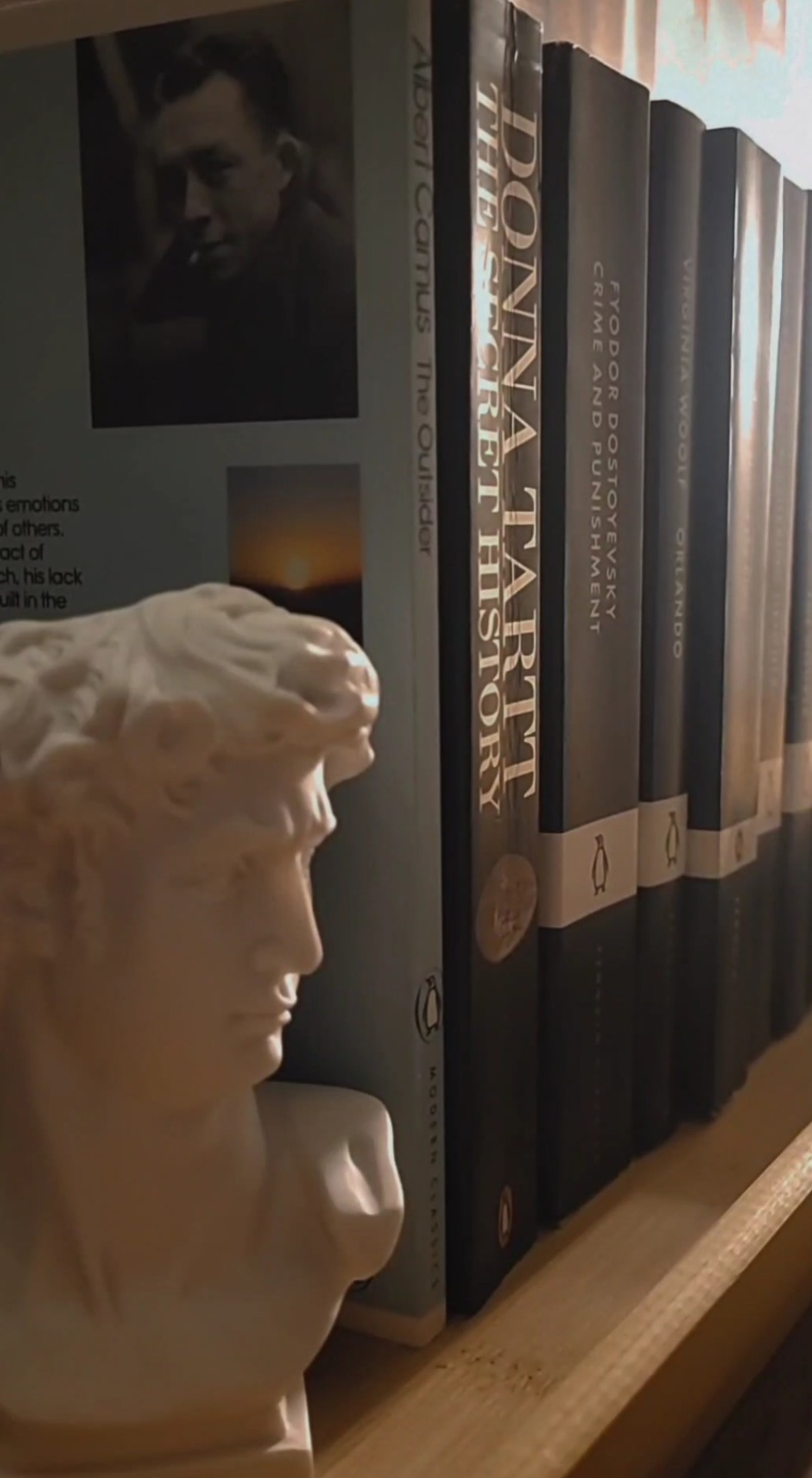
It is is better to know one book intimately than a hundred superficially.
-Donna Tartt
#dark academia#the secret history#books#donna tartt#francis abernathy#henry winter#richard papen#autumn#bunny corcoran#camilla macaulay#fyodor dostoevsky#albert camus#classic authors#light academia#dark acadamia aesthetic#dark aesthetic#writers on tumblr#author#writers and poets#poems and poetry#dead poets society#history aesthetic#fall aesthetic#aesthetic
86 notes
·
View notes
Text
The Five Stages of Reading Albert Camus
1. The Discovery – ”The Stranger” (1942)
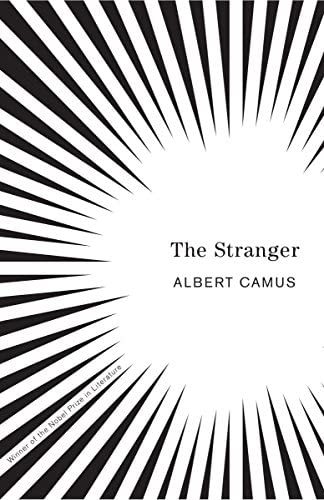
„The Stranger” is unquestionably the best choice for anyone who wants to get to know Albert Camus. It's so simple that it fools you at first. You think it's going to be an easy read, but when you finish the book and put it down, you don't even know your name or if it even matters to have a name. It will probably keep your mind busy for months and make you think about the true meaning of life. You will most likely never be the same person again.
2. Falling in Love – ”Betwixt and Between” (1937) // ”The Fall” (1956) // ”Exile and the Kingdom” (1957)
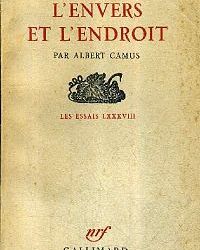
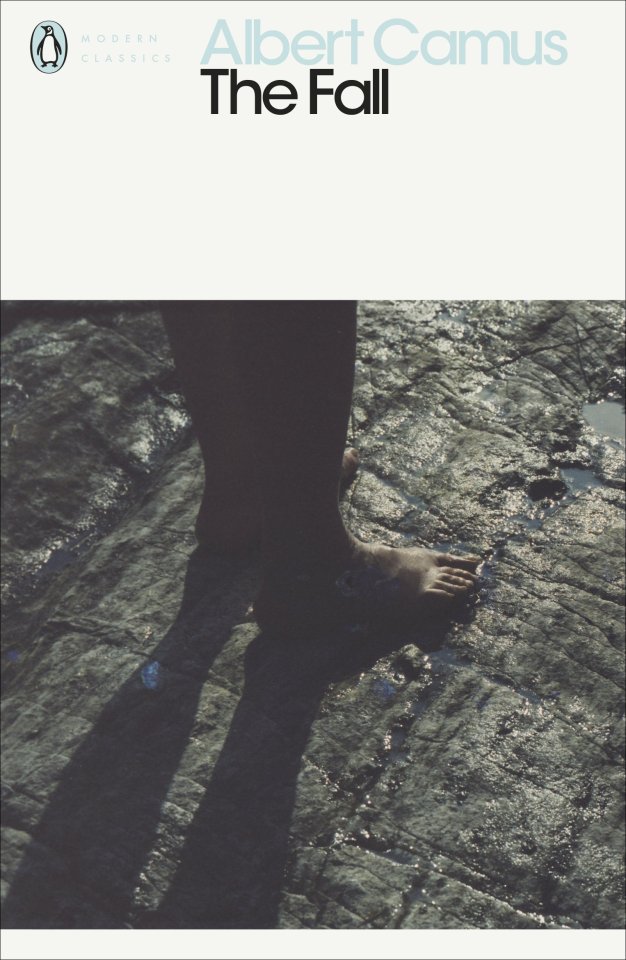
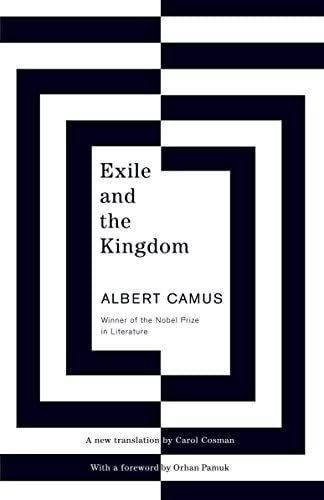
After "The Stranger" has had time to settle and stick in your mind (a process that takes about six months to a year), it's time to explore other writing. Camus doesn't use the same language in every book, so it's important to be careful what you choose to read after. The best options to fall irrevocably in love with this French philosopher are ”Betwixt and Between”, which is his very first published book, ”The Fall”, which offers a very interesting narrative perspective, or ”Exile and the Kingdom”, his only collection of short stories. After going through these, your heart will be caught in the nets of love for Camus.
3. The Surprise – ”The Plague” (1947) // ”A Happy Death” (written 1936–38, published 1971) // ”Summer” (1954) // ”Nuptials” (1938)

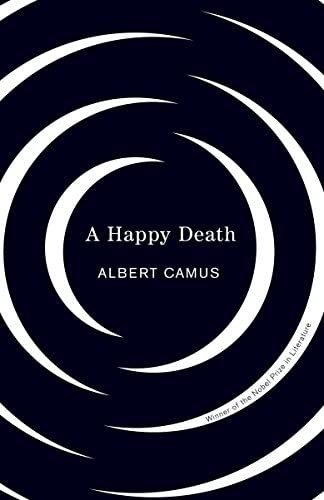

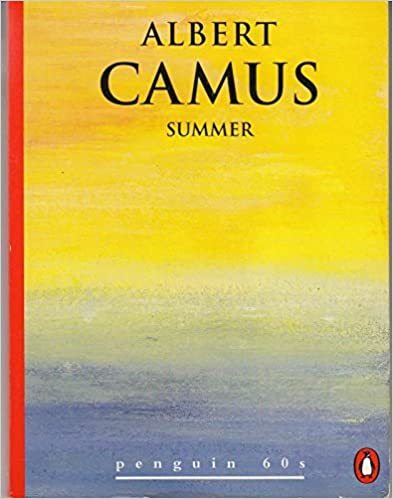
After the reader has gone through the above books, he will have the impression that he knows Camus. Now is the time for him to have the surprise of his life. Camus managed the feat of not giving the audience the same thing twice. That is why each of his writings is unique. Some are easier to read and digest, some are not. At this stage, it is time to get acquainted with its more difficult side. "The Plague" is a story that shakes you to the core and is difficult for even the best readers to get through. ”The Happy Death” should never have seen the light of day, being the first version of what we now know as The Stranger. "Summer" and "Nuptials" are dubbed essays and are similar in format to ”Betwixt and Between”, but here Camus approaches a completely new language, so poetic and refined that it instantly wins you over. Only after the reader goes through these books can he say that he understands a part of Camus.
4. Not just a writer – ”The Myth of Sisyphus” (1942) // „The Rebel” (1951) // Theatre Plays // Journalism Articles
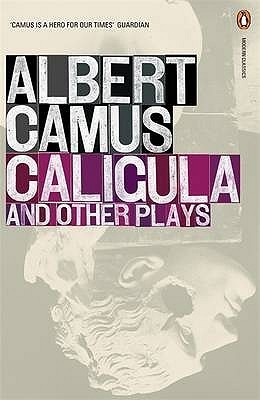
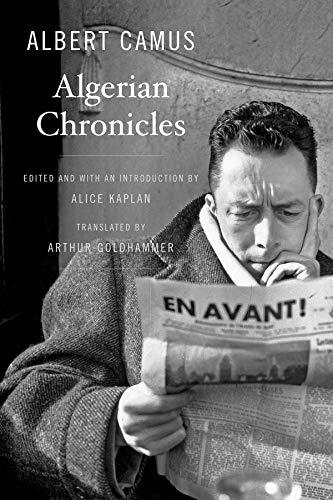
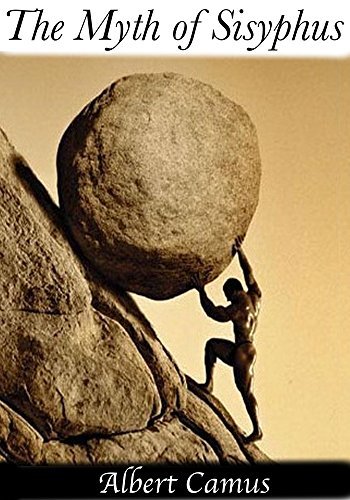
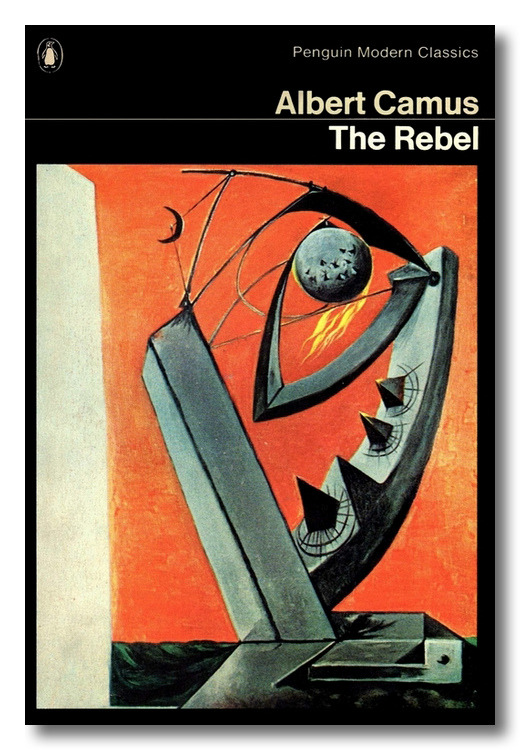
Camus was not only a great French writer. He was also a philosopher (though he never called himself that), a journalist and a playwright. If you are interested in fully understanding Camus, you must also understand his writings in other fields. "The Myth of Sisyphus" is the essay that formed the basis of the formation of a new philosophical current called absurdism. "The Rebel" continues the work started by "The Myth of Sisyphus", going much deeper into the issues related to the meaning of life, art, war, etc. Plays like "Caligula" (1938) or "The Misunderstanding" (1944) are wonderful pieces of art in the history of the theater, while summing up the entire philosophy of Camus. His journalistic articles reveal a Camus involved in society, trying to change something in one way or another through writing. "Reflections on the Guillotine" (1957) for example was an important work that contributed to the abolition of the death penalty in France. Camus never confined his writing to a single specialization, and this can be seen in the skill with which he explored the power of the word in its various forms.
5. Camus the Human – ”The First Man” (incomplete, published 1994) // ”American Journals” (1978) // ”Correspondence (1944–1959)” // ”Notebooks”
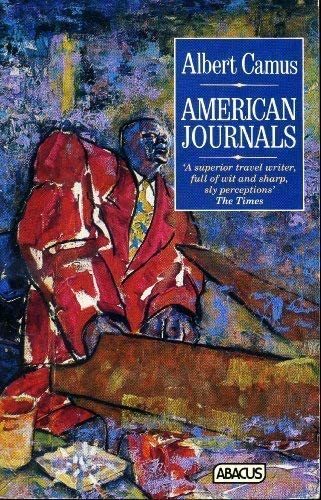
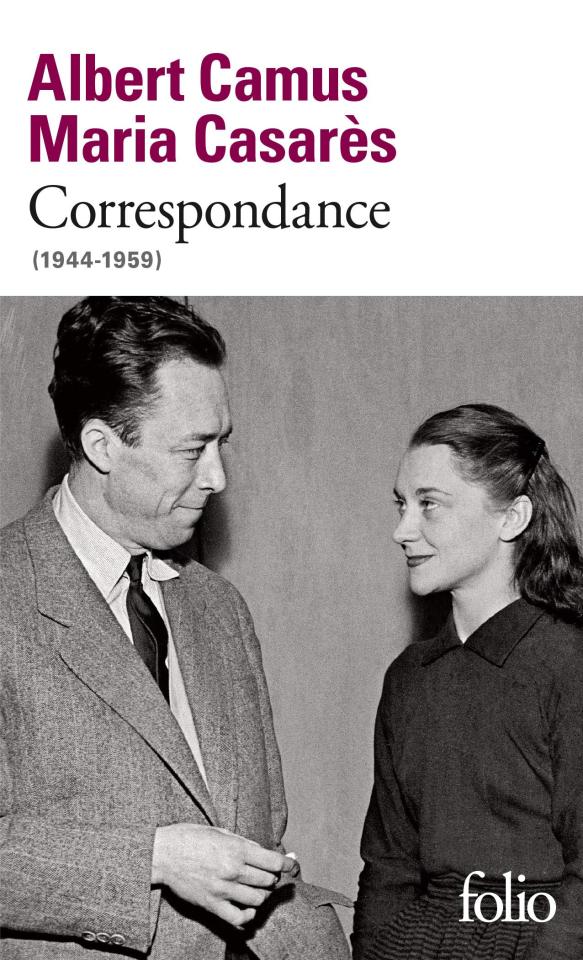
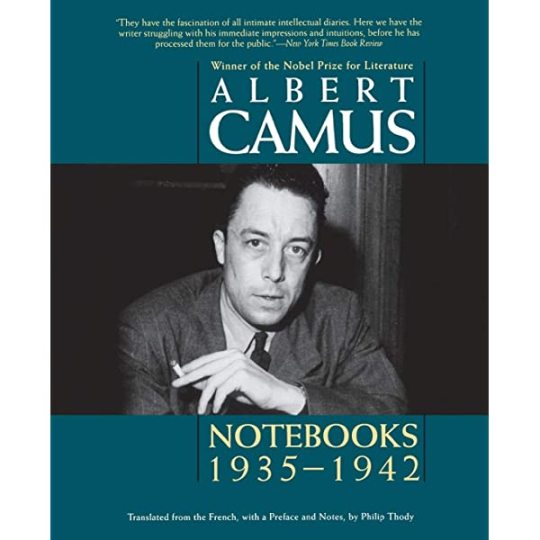

At this point, after going through all these readings, we also want to find out who was the man behind the word. Camus put many things from his personal life into writing, but in this selection we have the most personal point of view. ”The First Man” was supposed to be an autobiographical novel, but Camus died before he could finish it. The remaining manuscript was revised and published years after the author's death. "American Journals" captures a highly sensitive moment in his life, an existential crisis in Camus's life. ”Correspondence” is an exchange of letters between Camus and the woman with probably the greatest influence in his life, Maria Casares. Finally, the "Notebooks" are a collection made from the notes that Camus wrote over the years in his countless notebooks. Every intimate thought, beginning of a novel, reflection, trace of feeling, all these complete the image of Camus as a man.
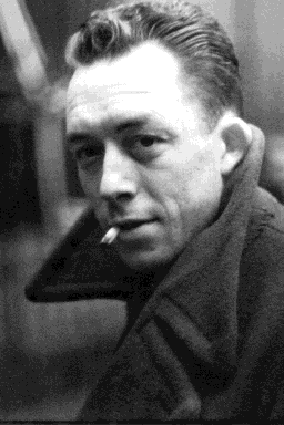
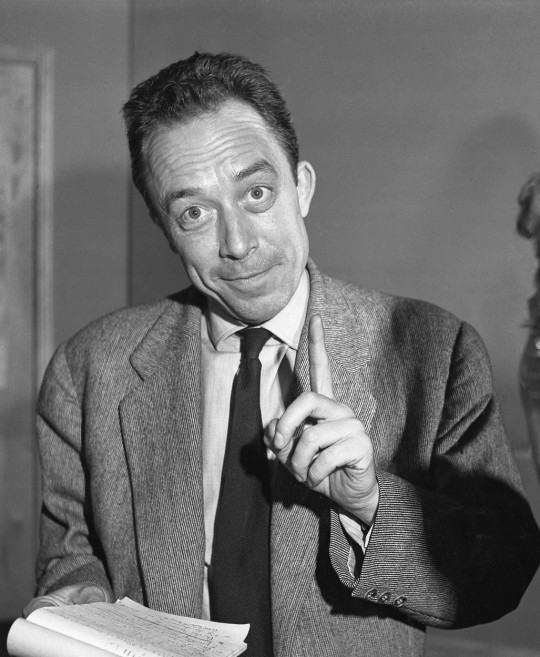
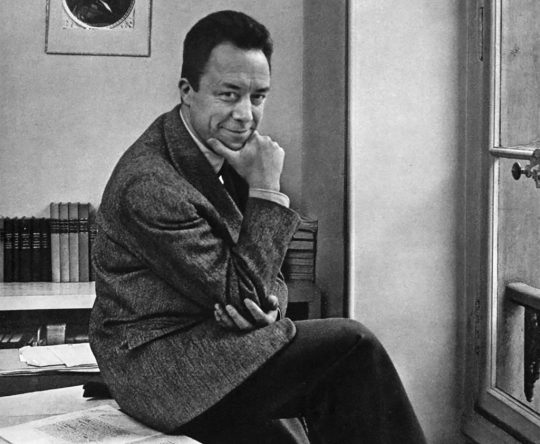
Congratulations! If you have reached this point, you have managed to go through all the stages of knowledge and you can call yourself a true fan of Albert Camus. Now go and spread his teachings to other little outstiders. And don't forget, the only purpose of life is to be happy (reading Camus together).
#albert camus#camus#camus quotes#classic literature#literature#french literature#albert#the stranger#the plague#the fall#exile and the kingdom#20th century#20th century literature#classic authors#a happy death#the first man#betwixt and between#nuptials#summer#the myth of sisyphus#the rebel#philosophy#philosopher#20th century philosophy#absurdism#absurd#existentialism#the theory of the absurd#notebooks#american journals
340 notes
·
View notes
Note
I have some pretty books that I can send you pictures of, some of them are vintage and some of them just have pretty skins
pls do??!! i will love u till the end of my days (as long as it's not a bother and u can take your time sending them to me)
#nejj bookblr#books#dark academia#light academia#chaotic academia#literature#academia#lit#bookblr#reading#soft academia#classic academia#romantic academia#old books#classic books#classic literature#modern classics#classics#classic authors
21 notes
·
View notes
Text

Who is your emotional support classic author?
That classic author you find yourself going back to again and again?
Those books you keep reading more of?
For me, it’s definitely Thomas Hardy. I’m a Far From the Madding Crowd bitch.
#godzilla reads#Thomas Hardy#classic authors#classic books#book blog#classic lit#classic literature#books and dogs#my pets#booklr#bookworm#reading#bookish
10 notes
·
View notes
Text

#maya angelou#music quotes#quotes#life quote#life quotes#healing quotes#music therapy#music heals#art therapy#lonliness#music is therapy#music is medicine#music is life#maya angelou quotes#classic authors#cozycore#music is my escape
7 notes
·
View notes
Text
He was as magical as he was sad, that boy. I saw him, clinging to that bottle for dear life, and drinking from it, as if he could drown every burden and all his pain in the burning sensation of the liquid going down his throat and into his stomach, sending him into a blissful state of forgetfulness and numbness.
But I saw it. I saw it, deep into his eyes as he held my wrists and locked his eyes with mine. I saw the sadness and the loneliness he tried so hard to hide. And it was so heartbreaking. He was so young. No one that age should be allowed to feel such sorrow.
However, in that moment, in which he looked at me and time stopped, I realized that he was the spitting image of me when I was his age. Drunk, confused, lonely, and so, so lost. I felt such a strong urge to hold him in my arms and let him cry his pain away until he felt whole again.
He had to leave, though. And, although he left the house that day, he hasn't left my mind since. Something in those big, melancholic eyes told me that I've got to offer him what nobody offered me: a hand to reach out to and a shoulder to cry on. I've got to offer him company, even at the bottom of the pit. Keep him company, be it in heaven, be it in hell.
I have got to help him heal his wounds until they become scars, and then I've got to teach him to love them.
I've got to be, to that boy, what I wish I'd had the most. I've got to be the someone who he knows will always be there for him, no matter who he is or how broken he is.
The drunken boy, gripping that goddamn bottle, his knuckles white, told me all of that, just staring into my eyes. It was just for a moment, but it was enough for me to see. Enough for me to recognize him as someone who once had been me.
#dark academia#fragmentsofmymindinwords#donna tartt#iwwv#tsh#if we were villains#classic authors#poetry#original poems#sad poems#secret society#dead poets society#tumblr writing society#life#drunk poetry#classical literature#lonlely#lonliness
31 notes
·
View notes
Text
In science we have been reading the notes to a poem; in Christianity we find the poem itself.
C. S. Lewis
#cs lewis quote#cs lewis#c s lewis#word art#english literature#literature#books#classic books#classic#poems and quotes#books and reading#classic poets#classical literature#classic authors#the chronicles of narnia#phantastes#the space trilogy#art#beautiful words#words#christian quotes#christianity#dark academia
8 notes
·
View notes
Text
How Syphilis affected H.P. Lovecraft's writing
#libraries#librarylife#libraryland#hp lovecraft#did you know#little known fact#classic authors#h.p. lovecraft
6 notes
·
View notes
Text
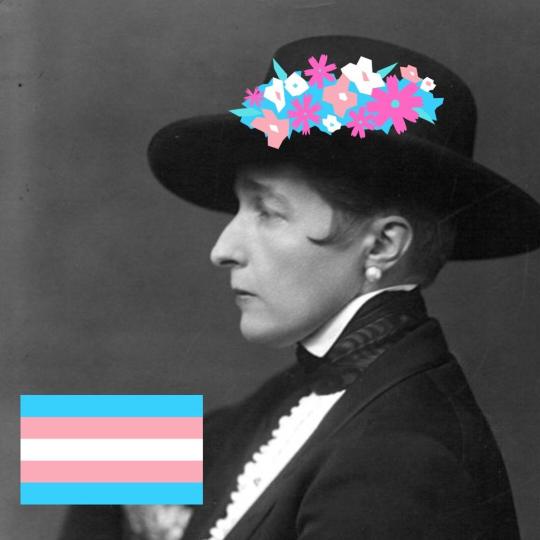


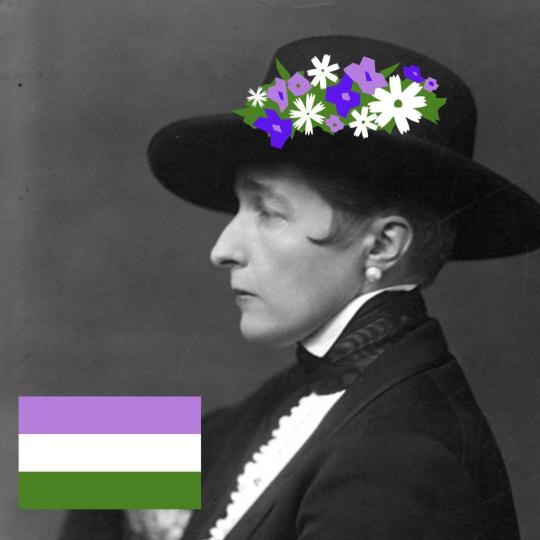
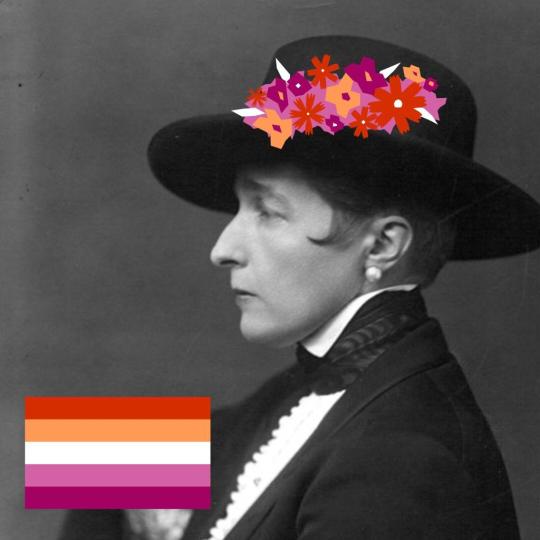
Radclyffe Hall (1880-1943)
born Marguerite Antonia Radclyffe Hall, but went by the name John on a daily basis
magnum opus: "The Well of Loneliness"
although Hall's person and work have been described as lesbian, "The Well" and Hall's behaviour were full of what we can now identify as transmasculine behaviour, with "The Well" focusing on the life of a writer resembling very much that of Hall
other works: "Adam's Breed", "The Unlit Lamp", "The Master of the House"
-
“For the sake of all the others who are like you, but less strong and less gifted perhaps, many of them, it's up to you to have the courage to make good.”
“Then Stephen must tell her the cruel truth, she must say: ‘I am one of those whom God marked on the forehead. Like Cain, I am marked and blemished. If you come to me, Mary, the world will abhor you, will persecute you, will call you unclean. Our love may be faithful even unto death and beyond — yet the world will call it unclean. We may harm no living creature by our love; we may grow more perfect in understanding and in charity because of our loving; but all this will not save you from the scourge of a world that will turn away its eyes from your noblest actions, finding only corruption and vileness in you. You will see men and women defiling each other, laying the burden of their sins upon their children. You will see unfaithfulness, lies and deceit among those whom the world views with approbation. You will find that many have grown hard of heart, have grown greedy, selfish, cruel and lustful; and then you will turn to me and will say: “You and I are more worthy of respect than these people. Why does the world persecute us, Stephen?” And I shall answer: “Because in this world there is only toleration for the so-called normal.” And when you come to me for protection, I shall say: “I cannot protect you, Mary, the world has deprived me of my right to protect; I am utterly helpless, I can only love you”.”
("The Well of Loneliness", Radclyffe Hall, 1928)
-
#the well is such a beautiful book please read it#the well of loneliness#radclyffe hall#literature#lgbtq authors#transgender#transmasc#lgbtq#non binary#classic authors#classic literature#british literature#queer history#queer literature#novels#books that absolutely ripped my heart out so i m recommending them to people >:)#skdsjlaljksla
13 notes
·
View notes
Text










#tolstoy#leo tolstoy#classic literature#classic authors#classic lit memes#classic iterature memes#classic literature memes#f scott fitzgerald#classic books#ernest hemingway#virginia woolf#the great gatsby
203 notes
·
View notes
Text
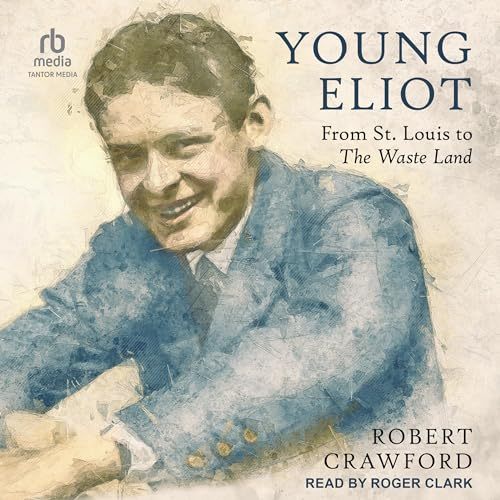
"Young Eliot: From St. Louis to The Waste Land"
Author: Robert Crawford
Narrator: Roger Clark
Audiobook Release Date: February 06, 2024
Length: 24 hours, 27 minutes
Care to listen to a sample of this audiobook? Click on the media player below 👇
Publisher's Summary:
Award-winning biographer Robert Crawford's Young Eliot traces the life of the twentieth century's most important poet from his childhood in St. Louis to the publication of his revolutionary poem The Waste Land.
Crawford provides listeners with a new understanding of the foundations of some of the most widely read poems in the English language through his depiction of Eliot's childhood as well as through his exploration of Eliot's marriage to Vivien Haigh-Wood, a woman who believed she loved Eliot "in a way that destroys us both."
Quoting extensively from Eliot's poetry and prose as well as drawing on new interviews, archives, and previously undisclosed memoirs, Crawford shows how the poet's background in Missouri, Massachusetts, and Paris made him a lightning rod for modernity. Most impressively, Young Eliot reveals the way he accessed his inner life—his anguishes and his fears—and blended them with his omnivorous reading to create his masterpieces "The Love Song of J. Alfred Prufrock" and The Waste Land.
At last, we experience T. S. Eliot in all his tender complexity as student and lover, penitent and provocateur, banker and philosopher-but most of all, Young Eliot shows us as an epoch-shaping poet struggling to make art among personal disasters.
©2015 Robert Crawford (P)2024 Tantor
Young Eliot is available from:
Audible ✰ Audiobooks.com ✰ AudiobooksNow.com ✰ AudiobookStore.com ✰ Barnes & Noble ✰ Binge Books ✰ Chirp Books ✰ Everand ✰ Downpour ✰ Google Play ✰ Hoopla ✰ Libro.fm ✰ Overdrive + Libby ✰ Rakuten Kobo
TIP:
If you want to find more audiobooks from Roger, you can click on the "Roger's Audiobooks" tag, or you can also check out my pinned post 😉
Happy Listening!
5 notes
·
View notes
Text
Little hidden gems from big russian authors
In the 19th century, Russian culture reached its peak. In this "Russian Golden Age", arts, culture and especially literature became known worldwide. This is a list of small masterpieces written by the great Russian authors of this period.
1. Alexander Pushkin // "Little tragedies" (collection of short plays // 1830)
Pushkin is known as the first great poet of Russia. His realistic writing is combined with romantic, elegant elements. What not many people know is that he also wrote plays. "Little Tragedies" is a fascinating collection of 4 unique plays, later adapted for opera.


2. Mikhail Lermontov // "Masquerade" (theatre play // 1835)
Considered the greatest poet after Pushkin, Lermontov contributed to the enrichment of the Russian language and culture. A great romantic poet, he is also an important playwright. "Masquerade" is a play written in the specific, critical style of Lermontov, in which the idea of freedom and independence is debated.

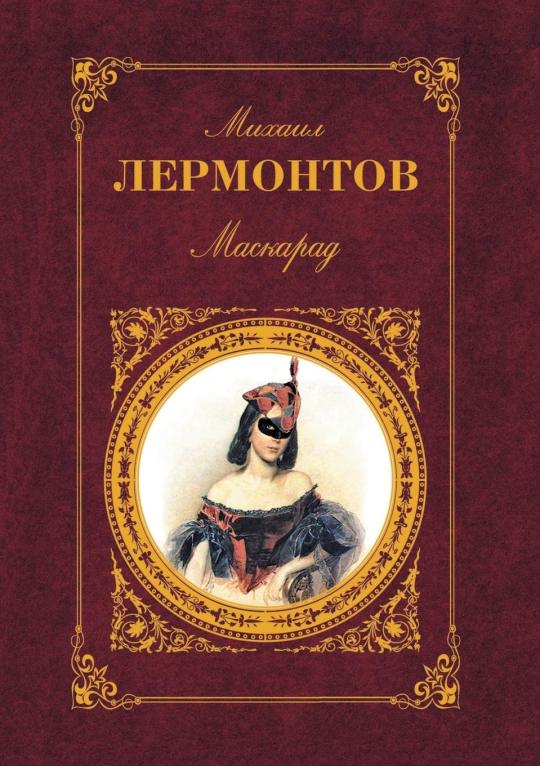
3. Nikolai Gogol // "Petersburg Tales" (collection of short stories // 1843)
Known for his famous comedies such as "The Government Inspector" and "The Gamblers" and for the novel "Dead Souls", Gogol was an influential Russian writer. The small collection of stories "Petersburg Tales" includes a fascinating series of short stories from different genres.


4. Ivan Turgenev // "A nest of the gentry" ( short novel // 1859)
Turgenev is the Russian writer closest to the Western European literary tradition. Very critical of his fellow Russians, his novels and stories emphasize the decadence of the golden years, the war between generations and the misery of the contemporary spirit. "A nest of gentry" is a small novel easy to read, with a fascinating storyline and complex characters.
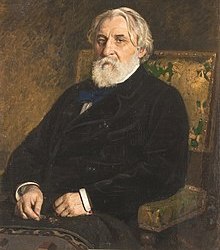

5. Fyodor Dostoyevsky // "Notes from the underground" (short novel // 1864)
I think there is no person who has not heard of Dostoevsky. One of the greatest writers of all time, his great novels have been translated into dozens of languages. Known as the faithful Orthodox writer, he develops the idea of the misery of the soul and human suffering. Many consider him the father of existentialism. "Notes from Underground" is a small novel that explores its big themes and is a fascinating read.

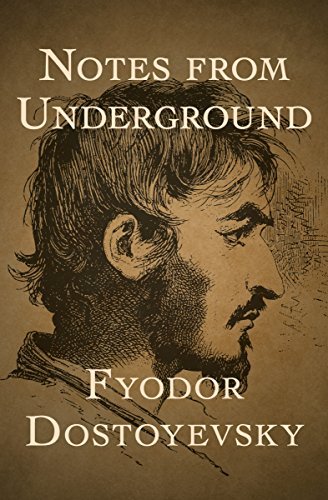
6. Lev Tolstoy // "The Death of Ivan Ilyich" (novella // 1886)
Tolstoy easily finds his place next to Dostoevsky. With a precious and analytical style, Tolstoy traverses the Russian bourgeois and aristocratic world and goes deep into both the mind and the soul of his characters. The novella "The Death of Ivan Ilyich" reflects on the serious theme of death in a tormented and poetic way at the same time.

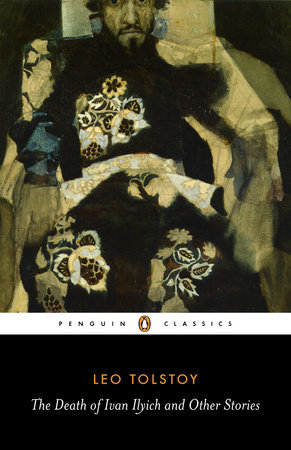
7. Anton Chekhov // "Ward no.6" (novella // 1892)
The last of the great writers of the golden age, Chekhov is known as a great dramatist with an extremely refined and sometimes even dark sense of humor. He wrote most of his life comic stories that he published in satirical magazines. His least known works are the short stories, created in a much more philosophical and meditative style. "Ward no.6" is one of the most special of them, in which the doctor of a small town finds an escape from the monotony of his life in discussions with a patient from the mental ward.
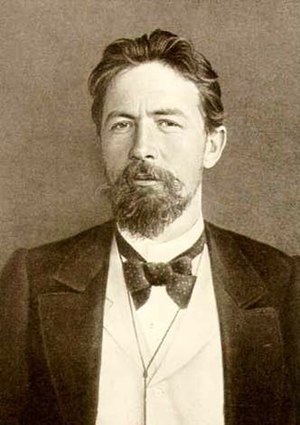
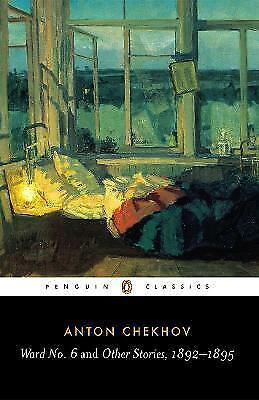
#russian literature#russian language#russian writers#19th literature#19 century#literature#classic literature#classic authors#alexander pushkin#mikhail lermontov#nikolai gogol#ivan turgenev#fiodor dostoievski#fyodor dostoevsky#leo tolstoy#anton chekov#darkest academics#darkest academia#dark academia aesthetic#dark academia#classic academia#academia#academics#classical academia#academia aesthetic#chaotic academia#light academia#bookblr#reading#bucketlist
66 notes
·
View notes
Text
Penguin Clothbound Classics: Jane Austen Complete Boxed Set
I received the Penguin Clothbound Classics Jane Austen boxed set for free from the publisher in exchange for a free and honest review. I’m so grateful to Penguin for sending me these beautiful editions!
Not only are the covers absolutely gorgeous, the box itself is beautiful too! I love that each book has a ribbon bookmark attached. Each book has a scholarly introduction, a timeline of Jane…

View On WordPress
#austen#book#book review#books#books.#classic#classic author#classic authors#classic book#classic book review#classic books#classic literature#jane austen#read#reading#review
3 notes
·
View notes
Text
idk if anyone here gives a shit but reading about the lives of japanese modern era writers is so fun...
(this blue mackarel/peach blossom incident is the most famous fight between dazai osamu and nakahara chuya)
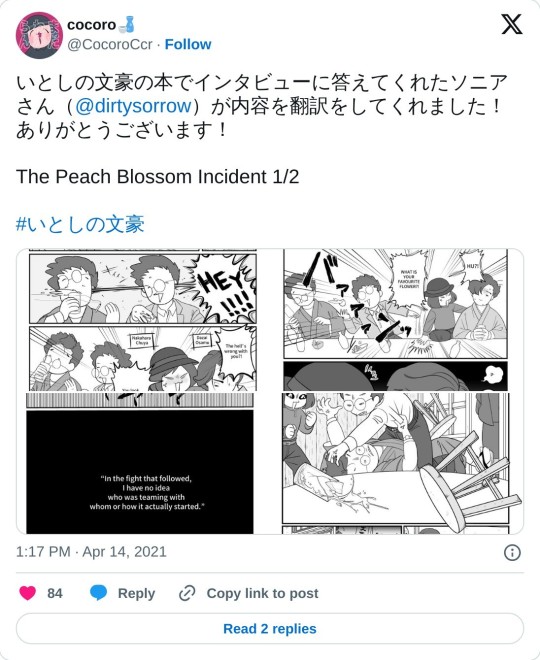
#the 'tsushima' mentioned in the epilogue is dazai's real surname#his real name was 'tsushima shuji'#absolutely in love with cocoro's art in general#she really captures the features even though theyre drawn so simply#like nakahara's signature GLISTENING ORBS kjsdhfa#- emil#ummmmmmm idk what to tag. the curse of bsd is looming over me#classic authors#japanese classic lit#idkkkkkkk#dazai osamu#osamu dazai#nakahara chuya#chuya nakahara#(THE AUTHORS. THE IRL AUTHORS)#dan kazuo#kazuo dan#kusano shinpei#shinpei kusano#not doing the double u spelling for nakahara bc its not standard and pretty much grarantees the character lol
5 notes
·
View notes
Text
No live organism can continue for long to exist sanely under conditions of absolute reality: even larks and katydids are supposed, by some, to dream. Hill House, not sane, stood by itself against the hills, holding darkness within; it had stood so for eighty years and might stand for eighty more. Within, walls continued upright, bricks met neatly, floors were firm, and doors were sensibly shut; silence lay steadily against the wood and stone of Hill House, and whatever walked there, walked alone.
Shirley Jackson, The Haunting of Hill House
#literature#haunting of hill house#shirley jackson#books#classic books#classic literature#classic authors#horror#haunted house#scary books#halloween#halloween 2023
2 notes
·
View notes